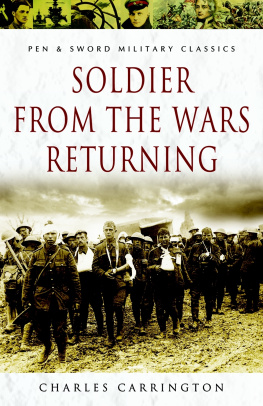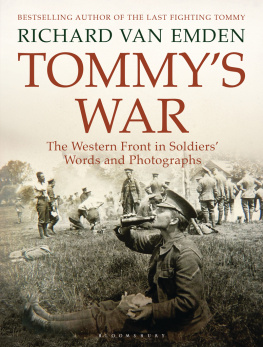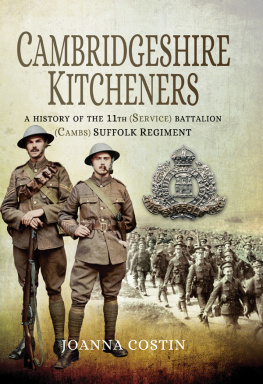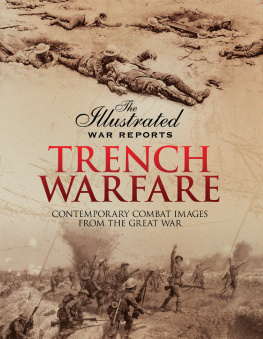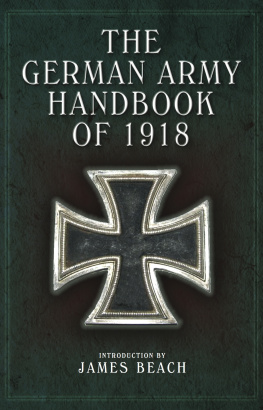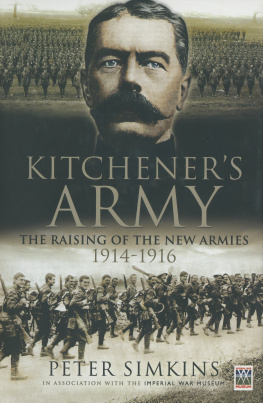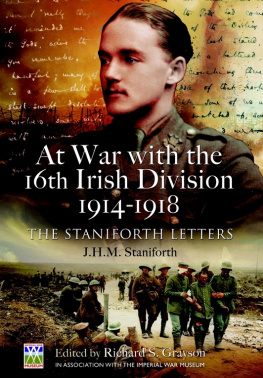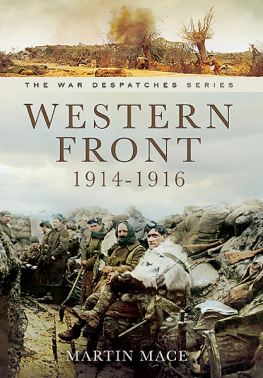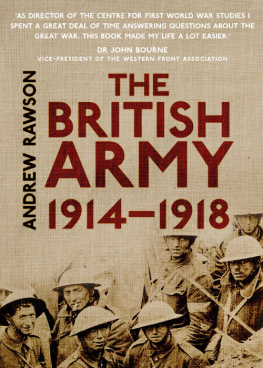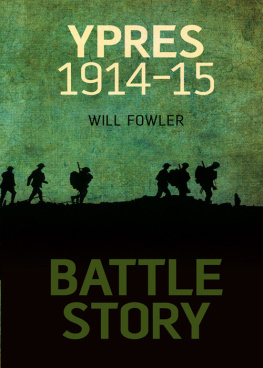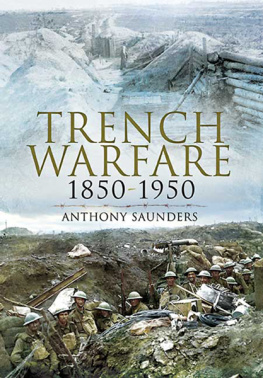To my wife and our three children, Ian, Elizabeth and Alison

First published in Great Britain in 2012 by
Pen & Sword Military
an imprint of
Pen & Sword Books Ltd
47 Church Street
Barnsley
South Yorkshire
S70 2AS
Copyright Ian Parker 2012
ISBN: 978-1-78159-155-0
eISBN: 978-1-78337-850-0
The right of EW Parker to be identified as author of this work has been asserted by him in accordance with the Copyright, Designs and Patents Act 1988.
A CIP catalogue record for this book is available from the British Library.
All rights reserved. No part of this book may be reproduced or transmitted in any form or by any means, electronic or mechanical including photocopying, recording or by any information storage and retrieval system, without permission from the Publisher in writing.
Typeset in 11pt Ehrhardt by Mac Style, Beverley, E. Yorkshire
Printed and bound in the UK by CPI Group (UK) Ltd, Croydon, CRO 4YY Pen & Sword Books Ltd incorporates the Imprints of Pen & Sword Aviation, Pen & Sword Family History, Pen & Sword Maritime, Pen & Sword Military, Pen & Sword Discovery, Wharncliffe Local History, Wharncliffe True Crime, Wharncliffe Transport, Pen & Sword Select, Pen & Sword Military Classics, Leo Cooper, The Praetorian Press, Remember When, Seaforth Publishing and Frontline Publishing.
For a complete list of Pen & Sword titles please contact
PEN & SWORD BOOKS LIMITED
47 Church Street, Barnsley, South Yorkshire, S70 2AS, England
E-mail: enquiries@pen-and-sword.co.uk
Website:www.pen-and-sword.co.uk
Contents
Foreword to the First Edition
T his book is the story of a soldiers pilgrimage of half a century ago in the grimmest war ever fought by our country. It was a pilgrimage which hundreds of thousands of young men made from the recruiting office in Britain to the veterans final mastery over self in the shell-scarred, rat-haunted slime of the front line that for four years stretched almost un changed from the North Sea to the Swiss frontier. For many that pilgrimage ended in a nameless grave in the mud or a wooden cross in one of the cemetery gardens of northern France and Belgium which still commemorate the courage, sacrifice and endurance that sustained this countrys resolve against the most powerful army the world had ever seen and that won in the end, at such terrible cost, victory.
Reading Ernest Parkers artless but deeply-moving account of his life in the First World War, I was again and again reminded of lines in which such poets as Robert Nichols, Wilfred Owen and Siegfried Sassoon set down their impressions of their generations tremendous ordeal:
of all borne and left unsaid
By the soldier. By the mire
Closing oer a comrades head,
By the faces stripped by fire,
By daylights dumb and crowded wire,
By moonlights lonely, loathsome dead
Most of all, I found myself recalling the heroes of that great, though temporarily forgotten, novel, Her Privates We* Sergeant Tozer, Weeper Smart, Little Martlow, Shem, Madeley:
These apparently rude and brutal natures comforted, encouraged, and reconciled each other to Fate with a tenderness and tact which was more moving than anything in life. They had nothing; not even their own bodies, which had become mere implements of warfare. They turned from the wreckage and misery of life to an empty heaven, and from an empty heaven to the silence of their own hearts. They had been brought to the last extremity of hope, and yet they put their hands on each others shoulders and said with a passionate conviction that it would be all right, though they had faith in nothing but in themselves and in each other.
As Edmund Blunden wrote of the infantryman of that now remote war, It is time to hint to a new age what your value, what your love was; your Ypres is gone and you are gone; we were lucky to see you in the pink against white-ribbed and socket-eyed despair. It is just this that Ernest Parkers narrative enables us to see.
Arthur Bryant
* By Frederic Manning, published originally (Peter Davies) under the pseudonym Private 19022.
Preface to the First Edition
W ell over thirty years ago, when the experiences of early youth were fresh in my mind, I wrote this brief narrative in the hope that one day I might wish to recall the memory of those formative years from 1914 to 1918. But for the enterprise of my son Ian, at a time when he had just finished his finals for an honours degree at Oxford, these reminiscences would never have seen the light of day. It was he who disinterred the almost illegible manuscript.
This, then, is the story of a youth of just under eighteen years of age from the time he joined Kitcheners Army as one of the first hundred thousand in 1914, until he found himself in hospital recovering from his last wound on the day of the Armistice on 11 November, 1918.
Looking back over the past half-century, the narrator, who finds he has forgotten so much of the detail of the happenings of those fateful four years, is filled with pity for his less-fortunate comrades and recalls with surprise the providential numbness by which those men he once knew so intimately were enabled to toil steadily throughout such battles as the Somme and Passchendaele without introspection or fear of the many dread tomorrows which so often were to succeed their nightly vigils.
How fortunate it was to be young then, and how very different it was to find oneself a quarter of a century later faced with another World War when wife and family as well as home and a satisfying and exciting career had to be abandoned in middle age in order to don the same old khaki serge.
It is only fitting that royalties from the sale of this book should be given to the Queen Alexandra Hospital Home at Worthing, where there are still a number of men disabled in the 1914-18 War. This worthy institution is, unfortunately, hard pressed for funds.
E. P.
Introduction to this Edition
A ll of them similar, no two alike; almost all of them in some degree illuminating, and therefore valuable to those who wish to form an understanding of a vast event: I am referring to the veterans recollections of the First World War. As the decades have ticked by the volume of these has grown enormously, and obviously the quality has been variable. In general, allowing for the initial impact of shock, attributable to the peculiarly distressing novelties of the First World War, it is the earliest impressions that are most valuable. Ernest Parkers narrative, whose first publication coincided with the 50th anniversary of the outbreak of the War, was in fact composed in the early Twenties, very close to the event, in the hope, he tells us, that one day I might wish to recall the memory of those formative years from 1914 to 1918.
That is a revealing statement: one day I might wish to recall. An almost universal characteristic of that generation of ex-Servicemen (the demobilized Citizen Soldiers) was their wish not to recall the revolting and quite literally shocking scenes which they had witnessed, particularly on the Western Front. It is probably for that reason that Parkers account is so sparse. This, indeed, is the only serious criticism that I would make of it: it could, and should, have been much longer. It is at all times lucid, precise, wonderfully descriptive: there ought to be much more of it.


